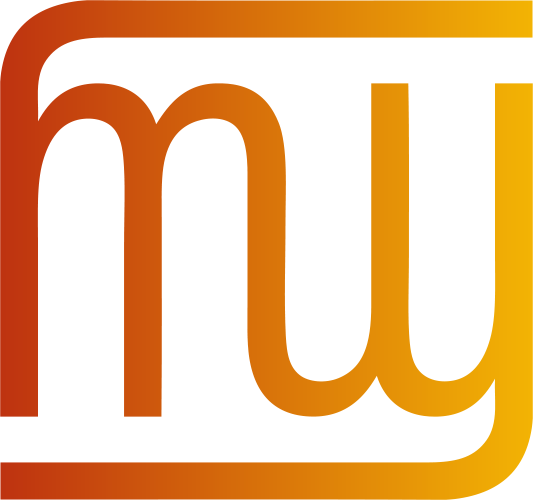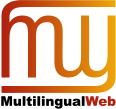 The W3C Internationalization (I18n) Activity works with W3C working groups and liaises with other organizations to ensure Web technologies work for everyone, regardless of their language, script, or culture.
The W3C Internationalization (I18n) Activity works with W3C working groups and liaises with other organizations to ensure Web technologies work for everyone, regardless of their language, script, or culture.
From this page you can find articles and other resources about Web internationalization, and information about the groups that make up the Activity.
Read also about opportunities to participate and fund work via the new Sponsorship Program.
What the W3C Internationalization Activity does
Selected quick links
Selected quick links
Selected quick links
New translations into Spanish
Declaración de idioma en HTML (Declaring language in HTML)
Uso de select para enlazar contenido localizado (Using select to link to localized content)
¿Caracteres o lenguaje de etiquetas? (Characters or markup?)
These articles were translated into Spanish thanks to the Spanish Translation Team, Trusted Translations, Inc.
New translations into Ukrainian
Багатомовні форми кодування (Multilingual form encoding)
Сортування випадаючого списку (Sorting select options)
Локалізація в порівнянні з Інтернаціоналізацією (Localization vs. Internationalization)
Одномовні і багатомовні веб-сайти (Monolingual vs. multilingual Web sites)
Інтернаціональні і багатомовні веб сайти (International & multilingual web sites)
These articles were translated thanks to Alexandr Shlapak.
New translations into Arabic
إرشادات مختصرة لتدويل الشبكة العالمية (Internationalization Quick Tips for the Web)
الفرق بين التدويل والتوطين (Localization vs. Internationalization)
مواقع عالمية ومواقع بلغات متعددة (International & multilingual web sites)
الفرق بين المواقع أحادية اللغة والمواقع متعددة اللغات (Monolingual vs. multilingual Web sites)
These articles were translated into Arabic thanks to Mohamed Fares.
New translations into Russian and Ukrainian
Ukrainian:
Пропажа пробілів Bidi (Bidi space loss)
Використання Керуючих символів Unicode для bidi тексту (Using Unicode controls for bidi text)
Направлення скрипту і мов (Script direction and languages)
CSS чи розмітка для підтримки bidi (CSS vs. markup for bidi support)
Керуючі символи Unicode чи розмітка для підтримки bidi (Unicode controls vs. markup for bidi support)
Russian:
Пропажа пробелов Bidi (Bidi space loss)
Использование Управляющих символов Unicode для bidi текста (Using Unicode controls for bidi text)
Направления скрипта и языков (Script direction and languages)
CSS или разметка для поддержки bidi (CSS vs. markup for bidi support)
Управляющие символы Unicode или разметка для поддержки bidi (Unicode controls vs. markup for bidi support)
These articles were translated thanks to Alexandr Shlapak.
Talk slides: Unicode Conference
On 18th October Richard Ishida and Addison Phillips gave a talk entitled
Towards the Promised Land: Globalization Developments in Web Standards
at the Internationalization & Unicode Conference in Santa Clara, California, USA.
The talk describes what we are doing to address unsolved issues on the Web, and how you can influence the outcomes. It includes references to the latest, ongoing work in HTML5 and CSS3.
On the previous day, Richard Ishida presented his half-day tutorial
New translations into Arabic
مقدمة لموقع تدويل الشبكة العالمية (Getting Started with the W3C I18n site)
تعريف أطقم المحارف والترميزات (Introducing Character Sets and Encodings)
اللغة والشبكة العالمية (Language on the Web)
These articles were translated into Arabic thanks to Mohamed Fares.
RSS feed links changed
The Internationalization Activity home page has recently been ported to WordPress. This means that the URIs for the various RSS feeds have changed. You can find the new links at the page W3C I18n news filters and RSS feeds.
The current URIs will continue to work for a short while, to support the transition, but you should change as soon as possible.
URIs for category filters have also changed, as have those for search key text within posts (useful for finding the history of a particular article or document). The latter have been converted to tags.
Slides and IRC logs for Limerick MultilingualWeb workshop now available

The MultilingualWeb Workshop in Limerick was once more a success, thanks to the efforts of the excellent speakers and the local organizers, but also thanks this time to the participants themselves who enthusiastically took part in the Open Space discussion organized by TAUS. This will hopefully lead to some longer term initiatives, and most groups are already planning to continue their discussions in Luxembourg, next Spring. We had around 90 attendees.
The program page has now been updated to point to speakers’ slides and to the relevant parts of the IRC logs. Links to video recordings will follow shortly.
There will also be a page pointing to social media reports, such as blog posts, tweets and photos, related to the workshop. If you have any blog posts, photos, etc. online, please let Richard Ishida know (ishida@w3.org) so that we can link to them from this page.
A summary report of the workshop will follow a little later.
New translations into Hungarian
Többnyelvű űrlapok kódolása (Multilingual form encoding)
Ki használ unikódot? (Who uses Unicode?)
Nem angol nyelvű tagek (Non-English tags)
Egynyelvű vagy többnyelvű honlapok (Monolingual vs. multilingual Web sites)
These articles were translated into Hungarian thanks to Petra Csobanka.
Just published: 1 new and 3 updated articles about language declarations in HTML
One tutorial and two articles have been updated, and a new article has been created from material that was moved out of the tutorial. The updates all involve major rewrites of the former text. These changes incorporate up-to-date information about how language declarations are handled in HTML5, and generally refresh and improve the previous material.
The new articles are:
![]() Working with language in HTML (tutorial)
Working with language in HTML (tutorial)
![]() Why use the language attribute?
Why use the language attribute?
![]() HTTP headers, meta elements and language information
HTTP headers, meta elements and language information
All articles use a new HTML5-based template with additional change to the boilerplate code.